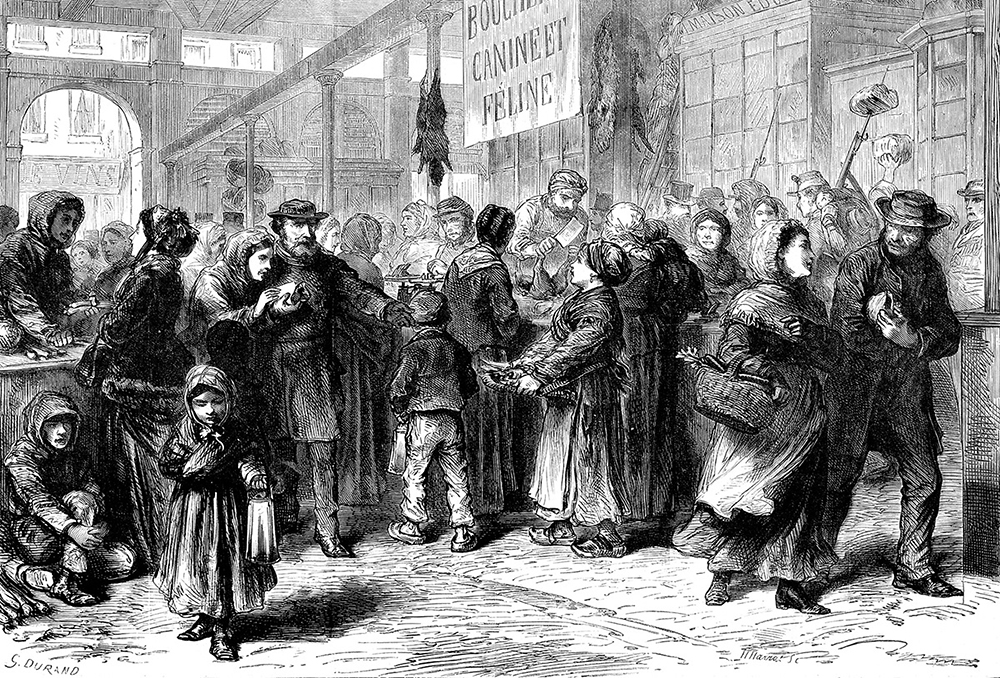When the Prussians closed the roads during the siege of Paris in 1870-71, food shipments ceased and larders depleted, starving the city into submission. Parisians resorted to eating cats and dogs, rats and pigeons and, finally, zoo animals. It sounds shocking, but how long would it take a modern city to follow that same path?
Common wisdom says there's about three days of food on hand but it's hard to put an exact number on it, says Mary Beckie. An associate professor in the Faculty of Extension, Beckie has expertise in sustainable and localized agri-food systems. "The global food system is complex," she says. "People take for granted they can pop down to the store for what they want." And while a drought in California spikes orange prices, serious upheaval could render us unable to get enough food. Some of us stockpile, but others have only the remains of last night's takeout. How we'd cope under siege would vary per personal and regional resources.
During the First and Second World Wars, backyard and community vegetable plots known as victory gardens were a necessity to augment food rations. And in recent years there's been a renewed interest in local and regional food.
Community gardens have wait-lists, and municipalities are supporting the movement. "In Saskatoon, for example, the city provides water, composting and mulch to every community garden," Beckie says. In 2018, the City of Edmonton started a pilot program offering vacant municipal lots to gardeners. More significantly, new interest in regional food production is building outside the city. In 2016, Statistics Canada reported that, for the first time since 1991, the number of people under 35 taking up farming increased. So take heart: outside the ramparts, crops are still growing.

We at New Trail welcome your comments. Robust debate and criticism are encouraged, provided it is respectful. We reserve the right to reject comments, images or links that attack ethnicity, nationality, religion, gender or sexual orientation; that include offensive language, threats, spam; are fraudulent or defamatory; infringe on copyright or trademarks; and that just generally aren’t very nice. Discussion is monitored and violation of these guidelines will result in comments being disabled.